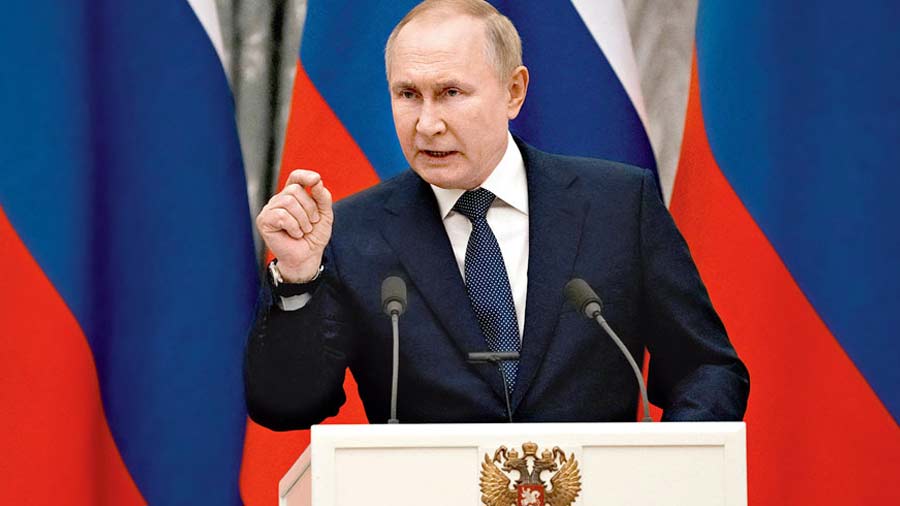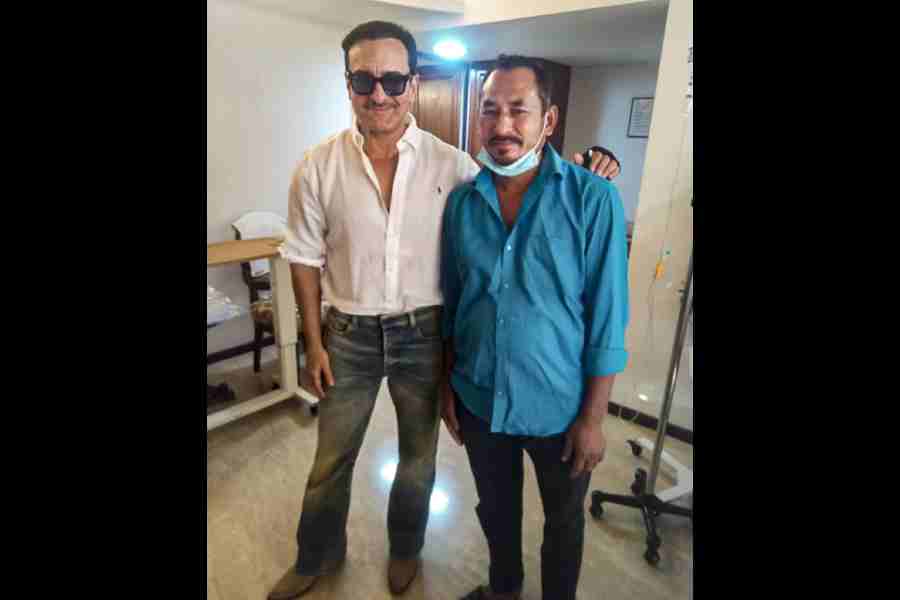Although the arrest warrant issued against the Russian president, Vladimir Putin, recently by the International Criminal Court was welcome, there was a certain puzzlement about the actual crime that he is being charged with.
This is a man who launched an unprovoked invasion of a neighbouring country, Ukraine. He declares that the country should not even exist, and denies that there is a valid Ukrainian identity. Those Ukrainians who believe they are not Russians are ‘Nazis’ who must be ‘re-educated’ or destroyed. This alone qualifies Putin for a charge of genocide.
An estimated 1,20,000 Ukrainian soldiers have been killed or wounded in the fighting since the start of the war, together with thousands of Ukrainian civilians. This exposes Putin to the charge of waging aggressive war.
Some of the soldiers under his command have committed well-documented massacres of Ukrainian civilians and various other atrocities against them. As the supreme commander, Putin is also liable for indictment on a wide variety of war crime charges.
So why did the International Criminal Court charge him only with the crime of deporting Ukrainian children into Russia, placing them in the care of Russian families as if they were orphaned refugees, and blocking them from contact with their real families?
There is no doubt that this is happening. The Independent International Commission of Inquiry on Ukraine says there is evidence of the illegal transfer of hundreds of Ukrainian children to Russia, and the Ukrainian government says that the real number is at least 16,221.
This phenomenon is a particularly shameful aspect of Putin’s obsessive campaign to erase the Ukrainian identity. However, with so many larger crimes to choose from, why did the ICC limit itself to what is essentially a charge of mass kidnapping?
The answer can be traced back to an event last year in the George W. Bush Presidential Center near Dallas, Texas, where the former American president ‘misspoke’ yet again. He meant to condemn Putin’s invasion of Ukraine, but he actually denounced “the decision of one man to launch a wholly unjustified and brutal invasion of Iraq... I mean of Ukraine.” Realising his blunder, Bush muttered “Iraq, too” and then excused himself on the grounds of age: “I’m 75." It was certainly a slip of the tongue, but it might have been a Freudian slip.
The two invasions are, of course, linked. Bush’s wholly unjustified and brutal invasion of Iraq broke the key law on which we built the post-1945 ‘rule of law’ in international affairs. Putin's did it again.
The victors of the Second World War knew that they might not survive a third, so they made attacking another country illegal. (It never was before.) The new rule, embedded in the United Nations Charter, is that borders, fair or not, must never be changed by force; only voluntary, negotiated changes are legal. In an era of nuclear weapons, that is not just a good idea; it is essential for our survival. And to a surprising extent, the new rule has been obeyed.
The world is still littered with civil wars, ‘wars of liberation’, and other traditional side shows, but full-on military invasions by great powers without the blessing of the UN Security Council have been very scarce in the past 70-plus years. In fact, only two come to mind: the American invasion of Iraq in 2003 and the Russian invasion of Ukraine last year. The difficulty in condemning Putin is that George Bush and his British sidekick, the former prime minister, Tony Blair, are still walking around free.
It would be blatant hypocrisy for the ICC to indict Putin for the usual range of war crimes when Bush and his pals committed them in Iraq and got away with it, so what’s left? Well, Russian forces have been kidnapping Ukrainian children and raising them as Russians. This is a form of ethnic cleansing forbidden by international law. So far as anybody knows, Bush didn’t kidnap Iraqi children. So that’s the charge we can use for Putin.
Not that we actually expect to bring him to trial.
Gwynne Dyer’s latest book is The Shortest History of War










